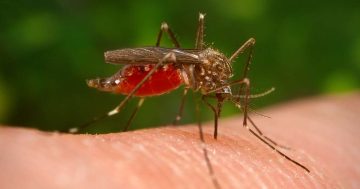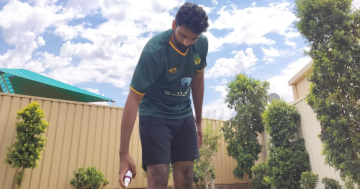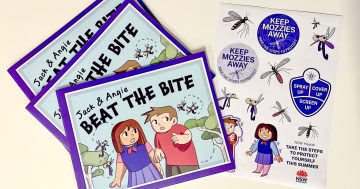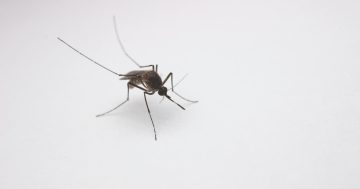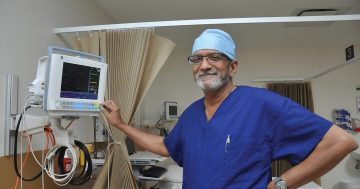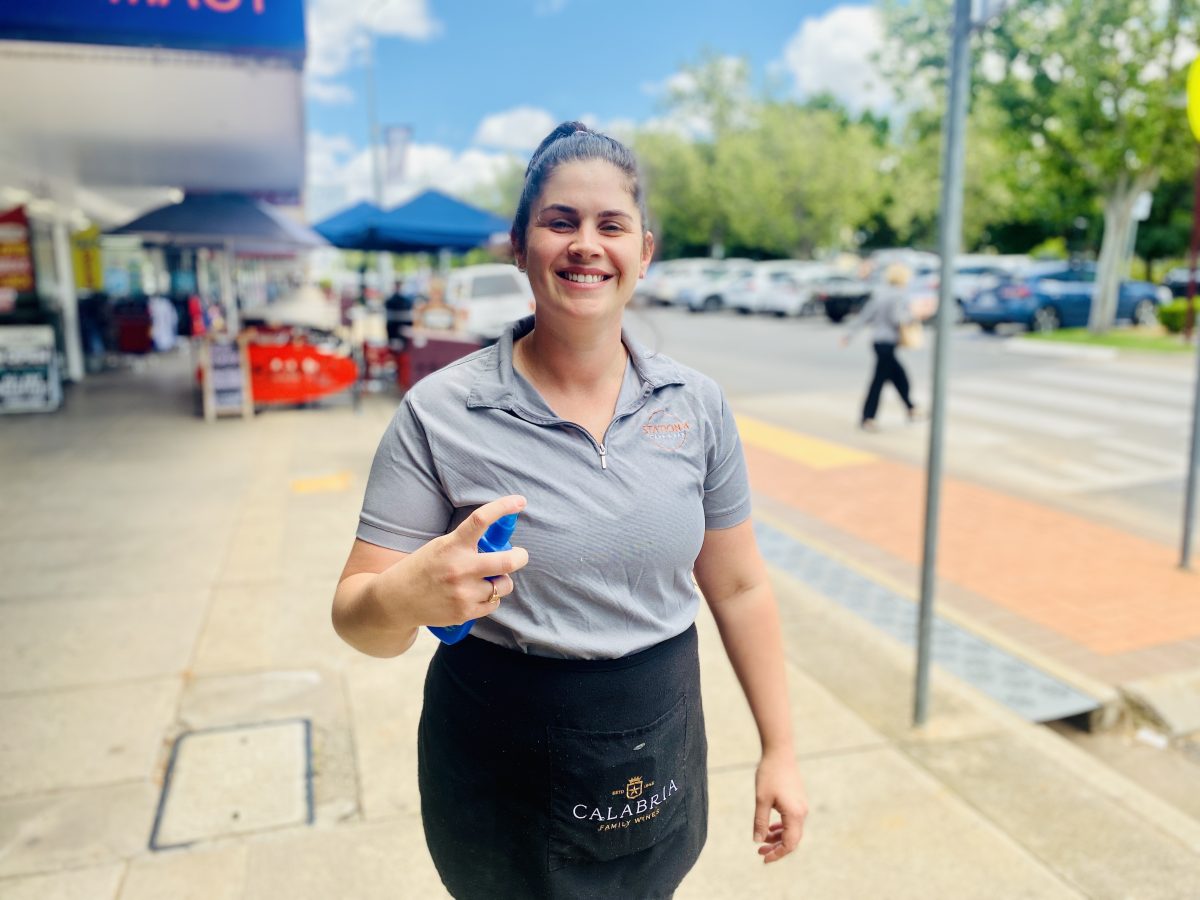
Griffith mum Amanda Elvy protects herself from mosquitos. Photo: Oliver Jacques.
Griffith City Council is urging residents to protect themselves from being bitten by mosquitos, as some residents say the current plague is the worst they have ever experienced.
Colombian immigrant Alejandro Carrera said he’d been shocked by the sheer volume of mosquitos in his new home town.
“Griffith’s mosquitoes are the worst I have ever seen in my life, anywhere in the world,” he said. “I have been to Cartagena [in the tropical north of Colombia] and you get the odd mosquito. But it’s nothing like here, there are thousands, millions even.”
That’s quite a statement considering Australia requires anyone entering the country from Colombia to be vaccinated for yellow fever, a virus transmitted via the Haemagogus species of mosquitoes. Mr Carrera said the word mosquito was Spanish for “little fly”.
“Mosquito numbers can increase after floods and storms as stagnant water from heavy rainfall and flooding provides the perfect conditions for mosquito breeding. Increased numbers of mosquitoes lead to an increased risk of being bitten and contracting mosquito-borne diseases,” Griffith City Council said in a statement.
The council’s environment and health department is participating in the 2022/23 NSW Arbovirus Surveillance Program to provide an early warning of the presence of Japanese encephalitis virus (JEV), Murray Valley encephalitis virus (MVEV) and Kunjin virus (KUNV) in an effort to reduce the potential for human disease.
The program commenced on 11 October 2022 and will run through to April 2023. It also includes the weekly bleeding of council’s sentinel flock (15 chickens). Blood samples are taken from the flock for identification and presence of disease. Weekly mosquito collection traps are set at two locations. The latest trapping yielded a large increase on the previous two weeks.
Longtime Griffith resident and mum Amanda Elvy said she’d never experienced anything like the current plague.
“It’s just so bad this year. My kids are getting eaten alive. They live with patches and sprays.”
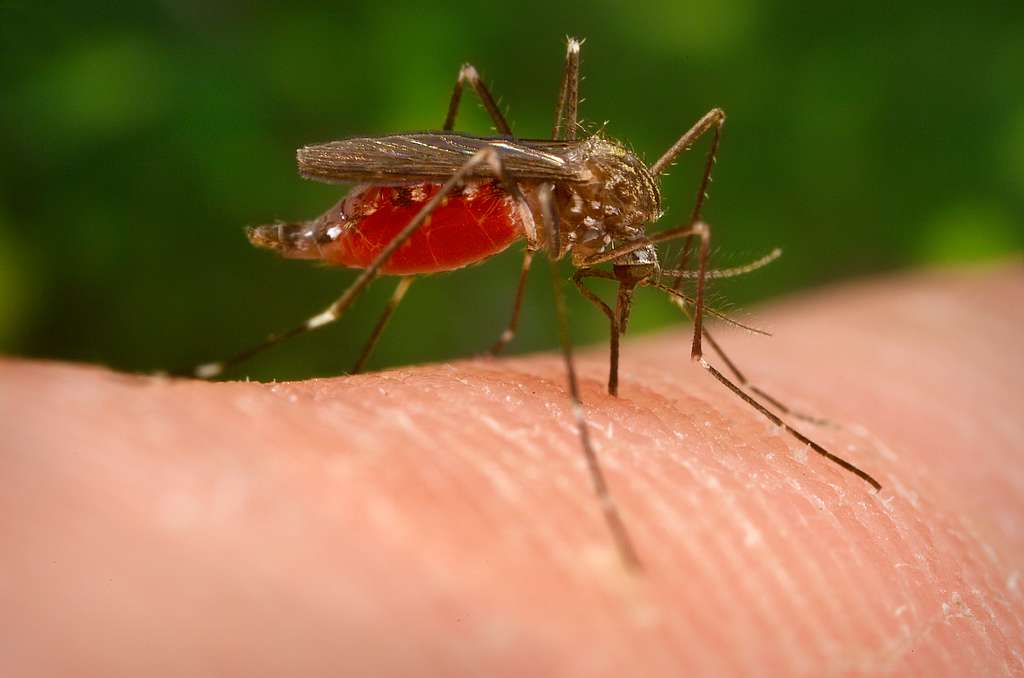
Mosquito is a Spanish word meaning “little fly”. Photo: Flickr.
Council’s director of sustainable development, Bruce Gibbs is urging locals to protect themselves.
“Take extra care during peak mosquito biting hours to reduce the risk of infection. Avoid the outdoors or take preventive actions (such as appropriate clothing and skin repellent). Most mosquitos become active at dawn and dusk, and into the evening,” he said.
“Avoiding mozzie bites will protect you from the diseases they carry. A reminder to spray up, cover up and screen up this summer to keep mozzies away.”
As at 9 November 2022, the Murrumbidgee Local Health District (MLHD) has confirmed eight cases of Japanese encephalitis in the region, which is a rare but serious illness transmitted via mosquito bites. Two people within the MLHD have died as a result of the disease. The health body says there will be an expansion of surveillance programs this summer, and an increased focus on bite prevention.
Further information on mosquito bite prevention is contained on a NSW Health fact sheet.







